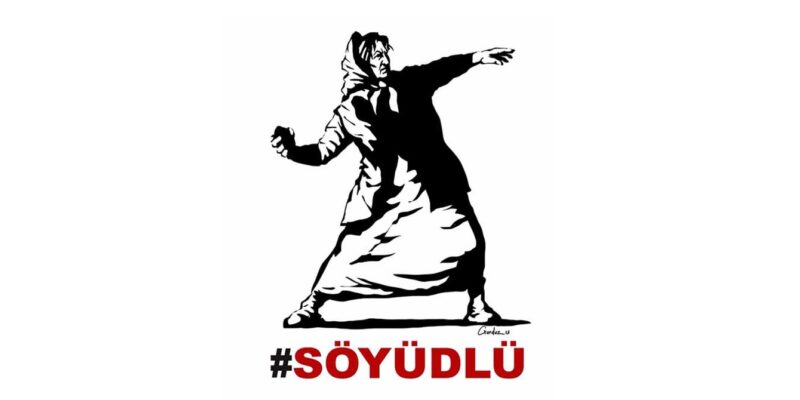Azerbaijan: journalists detained and beaten by police over protest coverage

The European Federation of Journalists (EFJ) condemns the excessive use of force by the police, the lockdown of the village, and the arrest of journalists, during the recent environmental protests in the village of Soyudlu in western Azerbaijan. The EFJ calls on the Azerbaijani authorities to promptly investigate all allegations of violations related to these protests.
On 20 June, residents took their grievances to the streets of the village, objecting to the construction plans for a second artificial lake. Residents say the existing artificial lake, built in 2012, is used to dump toxic waste from the mine. The waste is poisoning the drinking water with severe consequences on residents’ health. The protests quickly escalated as a result of disproportionate state response.
According to Global Voices and Meydan TV, the company that owns the gold mining business is Anglo-Asian Mining, formerly known as RV Investment Group Services LLC, a US firm based in Delaware. In previous years, the company was investigated over its ties to the daughters of President Ilham Aliyev, Arzu and Leyla Aliyeva.
On 22 June, police installed checkpoints for entry into the village, verifying address registrations of anyone trying to enter the village. The police denied entry into Soyudlu to Nargiz Absalamova, a reporter with the news website Abzas Media, Nigar Mubariz, a freelance reporter with Voice of America’s Azeri service, and Elsever Muradzade, a reporter on social issues. The journalists entered the village by another route and were reporting when two police officers and seven or eight people in plain clothes detained them and took their phones. When Mubariz demanded her phone back, one of the men in plain clothes covered her mouth with his hand, and a police officer twisted Absalamova’s arm and pushed her against a wall. The police officers then drove the journalists to a nearby town, where they returned their phones and released them.
On 22 June, officers of the State Service for Mobilisation and Conscription also summoned journalist Elmaddin Shamilzade, after he published a video showing police officers in Soyudlu the previous day. The following day, police in the Yasamal district of Baku detained Shamilzade and demanded that he delete the video. When the journalist refused, three officers punched him, struck him with a truncheon, kicked him in the stomach, and threatened to rape him. Shamilzade said he lost consciousness and, when he awoke, he deleted the video from Facebook. The police officers then took him to the Baku City Police Department, where an officer threatened to jail him if he spoke publicly about the attack. Shamilzade had bruising and scrapes on his neck, face, and body.
Furthermore, two other journalists, Giyas Ibrahim and Elmir Abbasov, were detained for 20 and 30 days, respectively, in retaliation for critical remarks posted on their social media. Following the arrest of Abbasov, the police put pressure on other members of NIDA, a civic movement to which Abbasov belonged. Several NIDA members have already been summoned to the police and asked to delete Abbasov’s critical posts.
On 23 June, police in the Binagadi district of Baku summoned Ulvi Hasanli, chief editor of Abzas Media, after he posted pictures of police officers who detained Absalamova, Mubariz, and Muradzade on Facebook. The officers demanded he delete the post, but he refused and was released after four hours. That evening, security staff at the United States Embassy in Baku removed Hasanli from the premises, and police detained him after he livestreamed three Azerbaijani activists protesting at the Embassy over the events in Soyudlu. Hasanli was taken to the No. 21 Police Station in the Nasimi district of Baku, ordered to delete photos and videos from his phone and released him after an hour.
On 25 June, Farid Ismayilov, a reporter with Toplum TV, was interviewing residents in the village of Chovdar, which neighbours Soyudlu, when two people in plain clothes who identified themselves as police tried to take his camera, saying that local officials had forbidden reporting. Ismayilov said that local officials threatened to have his relatives fired from their jobs if he published his reports.
“The public authorities are doing everything they can to prevent public opinion from being informed about the uprising of the local population against projects that are harmful to the environment,” said the EFJ General Secretary Ricardo Gutiérrez. “We demand that an investigation be opened and that the police officers who tried to prevent journalists from doing their job be condemned.”











